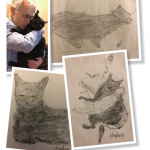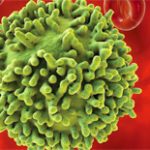“Also in his early discoveries, George’s laboratory showed that lupus T cells have decreased production of interleukin 2 and an increased production of interleukin 17. He has pioneered studies to understand the science behind this phenotype.
“And in 2013, George received an NIH Merit Award to continue his work characterizing the biochemical and molecular events that lead to decreased interleukin 2 production in lupus patients. The prestigious NIH Merit Award is given to less than 5% of NIH-funded investigators and will last for an extended cycle of 10 years instead of the typical five years for an R01.
“George is the consummate translational researcher. To echo what lupus research Dr. William Stohl said of George in 2010, ‘George truly understood the concept of translational research long before it became a fashionable phrase, and he has lived by the bench-to-bedside and bedside-to-bench credos for the past 30 years.’
“In addition, George has a distinguished teaching career; his trainees have become leaders of rheumatology departments in the U.S. and worldwide.
“George is a tireless crusader for the organizations he supports. He has been a longtime active member of the LFA’s medical and scientific advisory council. Just last month, George attended the LFA’s Walk to End Lupus now here in Boston, where he not only formed his own team, but also spoke to patients, caregivers and other clinicians about the need to find new and safer treatments for this disease.
“George has served on editorial boards of dozens of scientific journals, including the Journal of Clinical Investigation, the Journal of Immunology and the Journal of Clinical Immunology. He has chaired numerous committees of the American College of Rheumatology and has been a member of the Board of Directors of LFA. Dr. Tsokos has been elected to the Association of American Physicians, and he is also a Fellow of the American Association for the Advancement of Sciences, as well as a Master of the American College of Physicians.
“Ultimately, George’s T cell studies have paved the way for lupologists today to better understand the underlying mechanisms of immune dysfunction in lupus.”
‘You can accomplish more through elegant pursuit than through aggressiveness & feistiness.’
Dr. Tsokos Calls for Action
Dr. Tsokos made a call for action during his acceptance:
“This is indeed a special honor for me, and I want to thank the Lupus Foundation of America for choosing me. I want to thank all my colleagues whose work is honored today. Sharing it with my friend Jane increases the honor.

